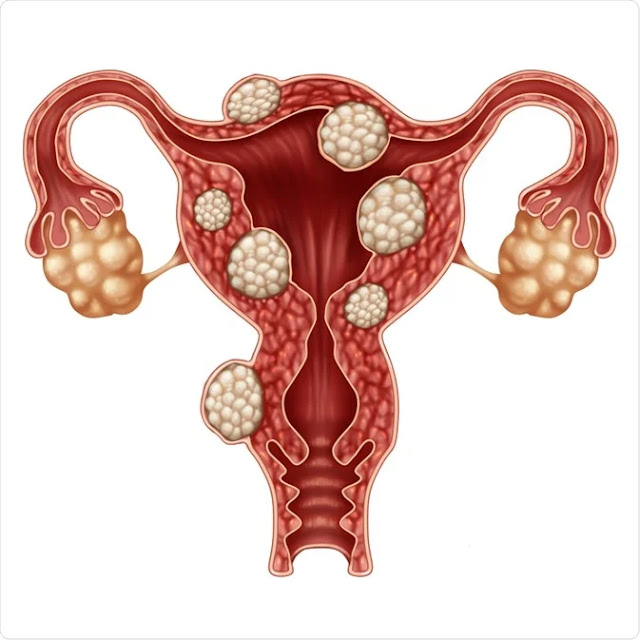THE FIBROID FIX
For the first time in so many days, I hope I will finally make sense to most of you as fibroid uterus is a relatively common diagnosis. It is said that almost 70-80% of women have fibroid uterus at some point of life even if they don’t have symptoms. I can easily count the number of women in my extended family and friends' circle who are diagnosed with fibroid uterus and still lead a symptom free life.
Fibroid uterus is a condition where small lumps develop inside the uterus from its smooth layer. Almost all fibroids are benign, meaning they are non-cancerous and don't turn into one unless that 0.01% comes into play in the extremely unfortunate. So don't panic when your doctor refers to your condition as a tumour, as most of them prefer to call it a tumour, irrespective of whether it's cancer or not. Unlike most toothpaste advertisements, we even claim that fibroids never turn into cancer, which is 100% of the time. So what's there to worry about? Why should we talk about it?
Even though fibroid is something that you should be least worried about in terms of its outcome, it can cause distressing symptoms that will affect life in terms of quality. Fibroids can occur either inside the cavity or the wall or outside the uterus and cause symptoms accordingly. Anyone after attaining puberty until reaching menopause is prone to develop uterine fibroid, more so in women who have not conceived before, reached puberty early, or those with increased body weight. Now again, smoking and oral contraceptives seem to protect women against the condition with no possible explanation.
It can be troublesome to the patient as it may cause distressing spotting, increased or painful menstruation, and lower abdominal pain. Very large lesions may also cause severe bleeding, leading to anaemia, sometimes even to the extent of warranting emergency surgery. Lesions that cause problems in the implantation of the fetus will cause repeated miscarriage and infertility.
Unlike other conditions of the uterus, diagnosing and treating fibroids is a relatively straightforward process. But once you get to know that you have fibroids, all you have to do is not panic and relax. Because not everyone with a fibroid is in absolute need of its removal. Most symptoms will go away as you are started on analgesics and hematinics, which help increase blood cells and hormonal medications like oral contraceptives. Only very rarely do people need surgery when it's huge, causing pain and discomfort or severe distressing bleeding and infertility. As always, mild symptoms warrant lifestyle changes, diet rich in iron, vitamin supplements and physical exercise. In specific instances, which are rarer than rarity, the uterus as a whole may have to be removed when the bleeding is unstoppable or in women who have finished their family. Very small fibroids can be left alone when you don't have any symptoms that bother you.
There are also options to block the bleeding vessels of the fibroid or just remove the fibroid alone without removing the entire uterus for women with moderate bleeding symptoms. When fibroids don't necessarily mean trouble, the symptoms they cause can be troublesome. So pay attention to your menstrual pattern and watch out for symptoms of anaemia to decide on the timing and type of treatment.
This post is a part of Blogchatter’s #A2Zchallenge 2024





Comments
Post a Comment